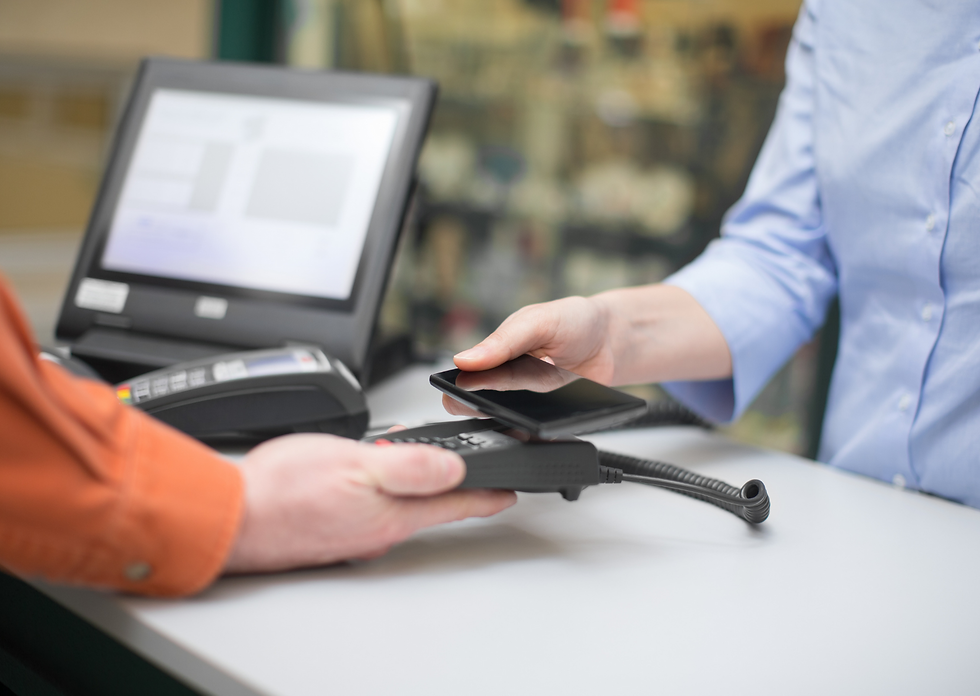How Will Contactless Technologies Be Useful When Traveling?
- Paul A.
- Feb 26, 2021
- 3 min read

The COVID pandemic has shone a spotlight on hygiene. Fear of catching the virus, any virus is one of the main barriers to returning to normalcy for travel and tourism. From now on, travelers will demand and value experiences that minimize interactions with other people and promote good hygiene practices. Conscious of this significant change in mindset and behavior, the travel industry is looking to incorporate more contactless technologies to restore confidence and get people traveling again.
While there is nothing new about the concept of touchless technology, the pandemic is accelerating its uptake. So here is a look at some of the ways contactless approaches are changing how we travel now and in the future.
No Need To Carry Cash
Notes and coins are notoriously dirty and almost always are passed from one pair of unclean hands to another. So it comes as no surprise that contactless payment systems are consigning cash to history. Tap-and-go cards, digital wallets, online prepay and virtual cards have soared in popularity due to the pandemic, and their use minimizes exposure to germs.
Reduced Contact With People and Less Congestion at Airports
Upon arrival at an airport terminal, customers may one day be able to breeze through without queuing for check-in or security control. The technology is already here and has been installed in some locations.
For example, travel technology firm Amadeus is working with Avinor, the company operating Norway's 44 state-owned airports, to roll out an end-to-end touchless travel program. A passenger can check-in remotely for a flight, and their boarding pass barcode is sent to their mobile phone. This also acts as a coupon to print their bag tag. At the terminal, when the passenger presents the barcode to a self-service kiosk, the label is printed automatically. The passenger then attaches the tag and drops their suitcase into the baggage system. There is no need to interact with anyone.
Avinor airports, like many others worldwide, offer touchless boarding where travelers present their boarding pass stored on their phone. Facial recognition technologies will further transform this experience.
Facial recognition boarding practices are already being tested and implemented in the USA, Canada, Spain and Iceland, among other places. Passengers look into a camera before boarding, wait for the verification of their biometric data and then stroll onto the plane.
Touchpoints and potential contact with other people could also be reduced with the widespread adoption of airport body scanners in the security zones.
Elsewhere in airport terminals, contactless elevators could become an everyday reality. In June last year, Abu Dhabi International Airport introduced touchless technology pads in its 53 elevators. Users command an elevator without pressing any buttons.
Minimal Rental Car Touchpoints
Once you land at your destination, you may need a car to whisk you to your hotel or rented accommodation. The rental car industry is looking at ways to make the process as germ-free as possible such as with self-locking cars, so keys don't have to be passed from person to person. There are already mobile-controlled unlocking systems on the market that let drivers unlock their car from a mobile app.
Transformed Hotel Check-Ins and Room Stays
The hospitality industry thrives on delivering exceptional and highly personal experiences. But in the wake of the pandemic, hotels are having to rethink the guest experience completely. In addition to intensive cleaning, they're investing in touchless tech to lure back guests and provide peace of mind.
Many people are understandably concerned about high-touch surfaces such as television remotes, room keys, light switches, and thermostat controls. Leveraging smart and touchless technologies will allow people to use their mobiles for keyless room entry, while voice-activated assistants can let them control the lights, TV, and room temperature without touching a single surface.
In China, Leyeju hotels already offer entirely touch-free stays in Chengdu, Shenzhen, Guangzhou, and Hangzhou. Guests check-in via biometric facial recognition technology in an unstaffed lobby, and a robot shows them to their rooms. Air conditioning, TVs, lights and curtains are adjusted automatically, meaning there is no need to touch any switches or buttons. The hotel chain is now looking to expand to more locations within the country.
Conclusion
Like many other industries, the travel industry is experiencing difficult times right now, but there is cause to look to the future with optimism. Many of the advanced technologies being developed and deployed will provide a more hygienic way to see the world and smoother and more stress-free travel experiences.




Comments